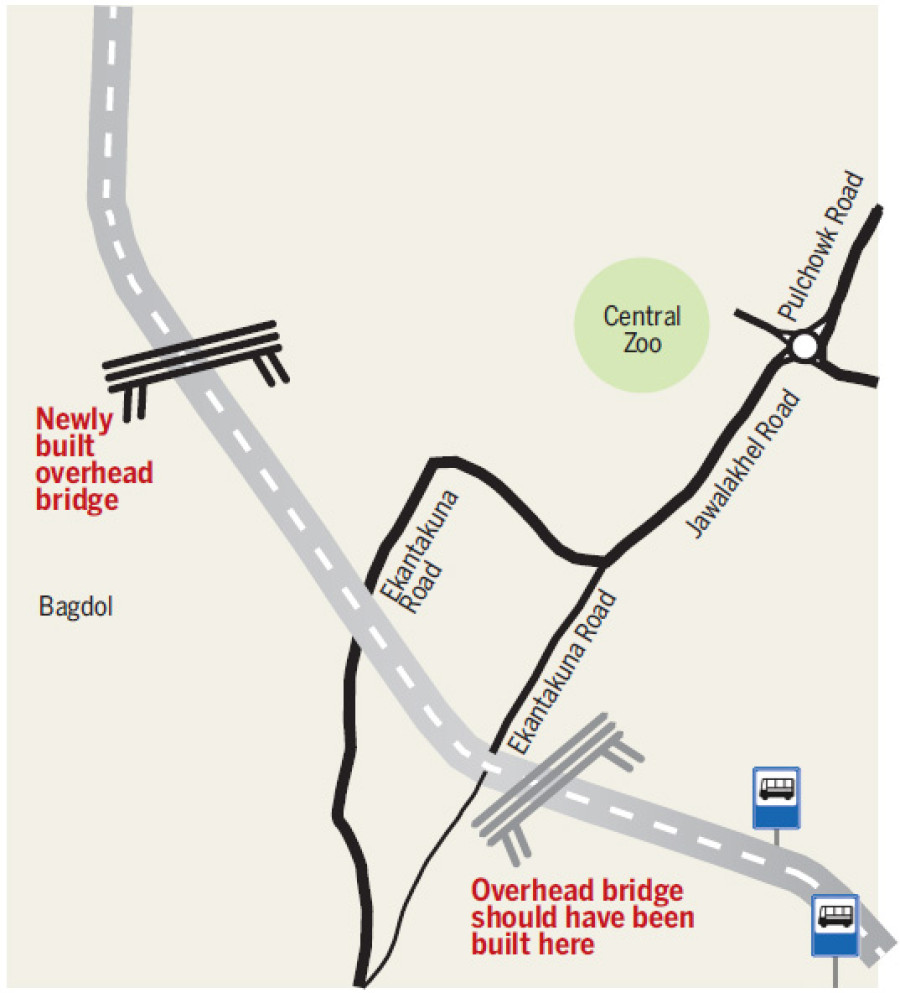Money
Lawmakers question priorities of infrastructure projects
The government has built an overhead bridge at the crossroad at Bagdol, Ring Road even though a much busier intersection at Ekantakuna 300 metres away needs it more, said residents as they questioned official priorities.
Bibek Subedi
The government has built an overhead bridge at the crossroad at Bagdol, Ring Road even though a much busier intersection at Ekantakuna 300 metres away needs it more, said residents as they questioned official priorities.
The crossing at Ekantakuna sees heavy automobile and pedestrian traffic as it is used by many people travelling to and from Bhainsepati.
“Whenever I pass by that section of the Ring Road, I always wonder why the overhead bridge has been built in a place with less pedestrian traffic instead of at a more congested place,” said Lawmaker Anita Devkota, speaking at a meeting of the parliamentary Development Committee on Wednesday.
“Later, when I asked locals, I found out that an engineer at the Department of Roads has a plot of land at the spot where the overhead bridge has been built.” The example cited by Devkota is just one among many of the way infrastructure development is prioritized, selected and implemented in the country. There are several instances where we can see such wrongdoing by politicians and bureaucrats while building infrastructure projects.
Minister of Physical Infrastructure and Transport Ramesh Lekhak, Secretary Dhana Bahadur Tamang and Deputy Director General of the Department of Roads Saroj Kumar Pradhan who were at the meeting had no answer. However, everyone present at the meeting, including House Committee Chairm-an Rabindra Adhikari, agreed that the government did not have an appropriate mechanism to select infrastructure projects, and that they were selected at the whim and fancy of those in power.
This is generally done to serve the vested interest of someone rather than meet the development needs of the country. Likewise, bridges have been built across rivers where they have little strategic value. To address this issue, the committee on Wednesday directed the government, concerned ministries and the National Planning Commission to prepare a policy to guide the process of selecting locations for the construction of bridges.
“The government and the concerned agencies are directed to start developing such a mechanism within three months,” the House Committee said in its directive.
Minister Lekhak assured lawmakers that his ministry would immediately start work to develop such a policy. “I request you to call me to a meeting like this one after a month,” he said. “At that time, I will place a basic framework of the policy in front of you.”
Lawmakers also complained about delays in the construction of bridges at different road sections across the country, and asked why the department had not been able to take action against their employees and contractors who fail to perform their duty.
“Why don’t you blacklist the contractors who fail to complete the construction on time?” asked Lawmaker Ang Tawa Sherpa.
The committee also instructed the department to provide a list of blacklisted contractors within a week. “During our earlier meeting too, we had asked the department to provide the House Committee a list of contractors that have been blacklisted for missing their construction deadline,” the committee said in its directive. “This meeting again directs you to provide such a list within seven working days.”




 9.89°C Kathmandu
9.89°C Kathmandu















